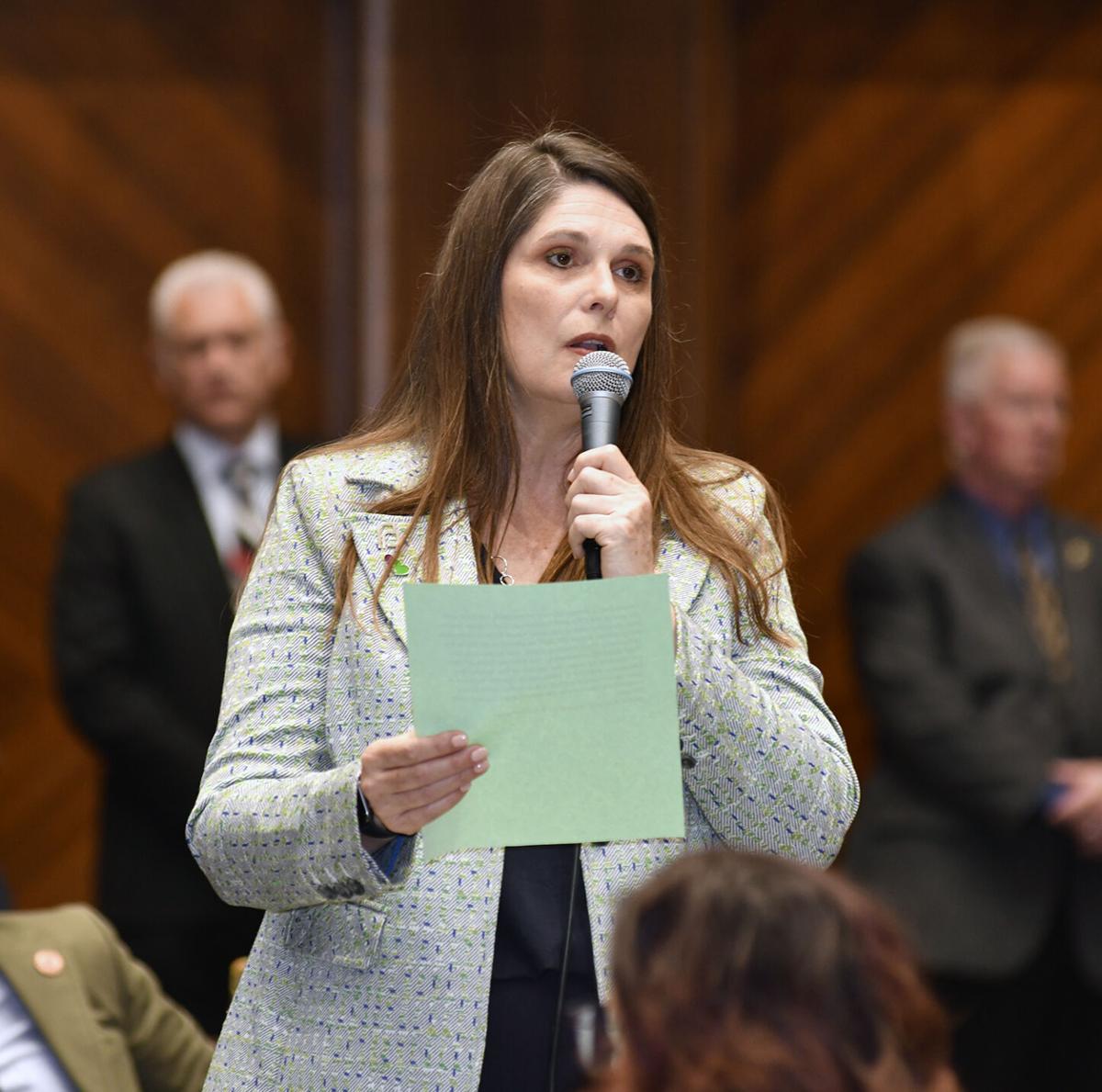PHOENIX — Four lawmakers want the attorney general to issue a legal opinion on when women in Arizona can legally get an abortion after the 15th week of pregnancy and when doctors can perform the procedure without risking going to prison.
In a letter to their fellow Democrat, Attorney General Kris Mayes, the four legislators point out that the 15-week limit, currently in effect, allows for a pregnancy to be terminated after that point in cases of a “medical emergency.’’
But nothing in the 2022 law defines what that means. That creates problems, wrote Sens. Christine Marsh and Rep. Judy Schwiebert of Phoenix, Sen. Eva Burch of Mesa and Rep. Stephanie Stahl Hamilton of Tucson.
“These pregnant people face, while in the midst of a medical emergency, a situation in which their future reproductive health is being threatened,’’ they wrote. They also said the lives of some who are pregnant “would be endangered or even lost due to confusion by doctors as to what constitutes a medical emergency under state law.’’
It’s not just about the patients, they said.
“Medical doctors should not have to put their medical license or their personal freedom at risk for perform an abortion that they need to be medically appropriate to avert death or for which a delay will create a serious risk of substantial and irreversible impairment of a major bodily function,’’ they wrote.
The letter seeks a response by the second week in July. A spokesman for Mayes said she is working to meet that target.
The Arizona law is in effect because of the 2022 decision by the U.S. Supreme Court to overturn Roe v. Wade, the historic 1973 ruling that women had a constitutional right to terminate a pregnancy.
Under Roe, women in Arizona could get an abortion without having to provide a reason through fetal viability, generally considered between 22 and 24 weeks. After that, however, there always was an understanding that abortion was available to preserve the life or health of the mother.
The Arizona Supreme Court ruled in April that the demise of Roe meant Arizona could again enforce a territorial-era law, never repealed, that outlaws the procedure except to save the life of the mother. But the justices put that ruling on hold to give Mayes a chance to seek U.S. Supreme Court review.
That leaves the 15-week law, adopted in 2022, in place for the time being — including what the four lawmakers say is a lack of a definition when a “medical emergency’’ abortion is allowed after that.
“This is a situation that is faced daily by pregnant people across the state,’’ they wrote to Mayes. “There is an urgent need to inform practitioners as to what is legally appropriate under current state law.’’
The Arizona lawmakers are seeking something more specific than is going on in Texas, which has a near-total abortion law and, as in Arizona, does not define its exception. The Texas statute permits the procedure in cases where a doctor exercises “reasonable medical judgment.’’
Late last year, a Texas woman, Kate Cox, sought an abortion after she learned her fetus had a lethal anomaly. She argued that a continued pregnancy endangered her life and future fertility. But her doctors refused to perform the procedure because they feared running afoul of the law.
Cox ended up going out of state when the Texas Supreme Court concluded there was nothing unclear about the law. But the court did agree to ask the Texas Medical Board to come up with more guidance. That board is weighing rules to clarify, which remain in limbo following criticism from women, doctors and representatives of medical associations who said they really don’t clarify anything.
The Arizona lawmakers are asking Mayes to “help articulate to both pregnant persons and medical practitioners how to determine what it means for a pregnant person to be experiencing a ‘medical emergency.’’’
That includes what medical implications a doctor could use to satisfy the requirements to allow an abortion past the 15-week mark.
“To put it another way, at what point does a medical emergency allow for an immediate abortion under state law?’’ they asked.
All this could become moot if voters approve a proposed constitutional amendment in November that would enshrine a right to abortion in the Arizona Constitution.
It would prohibit the state from denying, restricting or interfering with that right prior to fetal viability. Abortions would be allowed beyond that point in cases where “in the good faith judgment of a treating health care professional (it) is necessary to protect the life or physical or mental health of the pregnant individual.’’
Backers say they already have enough signatures to qualify for the ballot.
There also is organized opposition by those who say the language, particularly the mental health exception, is too broad.
In seeking an opinion from Mayes, the four Democratic legislators spelled out their request should not be seen as an endorsement of the current 15-week ban.
“To the contrary, we strongly oppose the arbitrary deadline of 15 weeks of pregnancy to obtain a lawful abortion in this state,’’ they wrote.
“By placing such a restriction on reproductive healthcare, the state is threatening the lives of pregnant people, sending a signal that the state does not trust them with their healtcare decisions,’’ they continued. “But the 15-week provision is current law, and our constituents desperately need legal guidance on what constitutes a medical emergency after 15 weeks.’’
Get your morning recap of today's local news and read the full stories here: tucne.ws/morning





